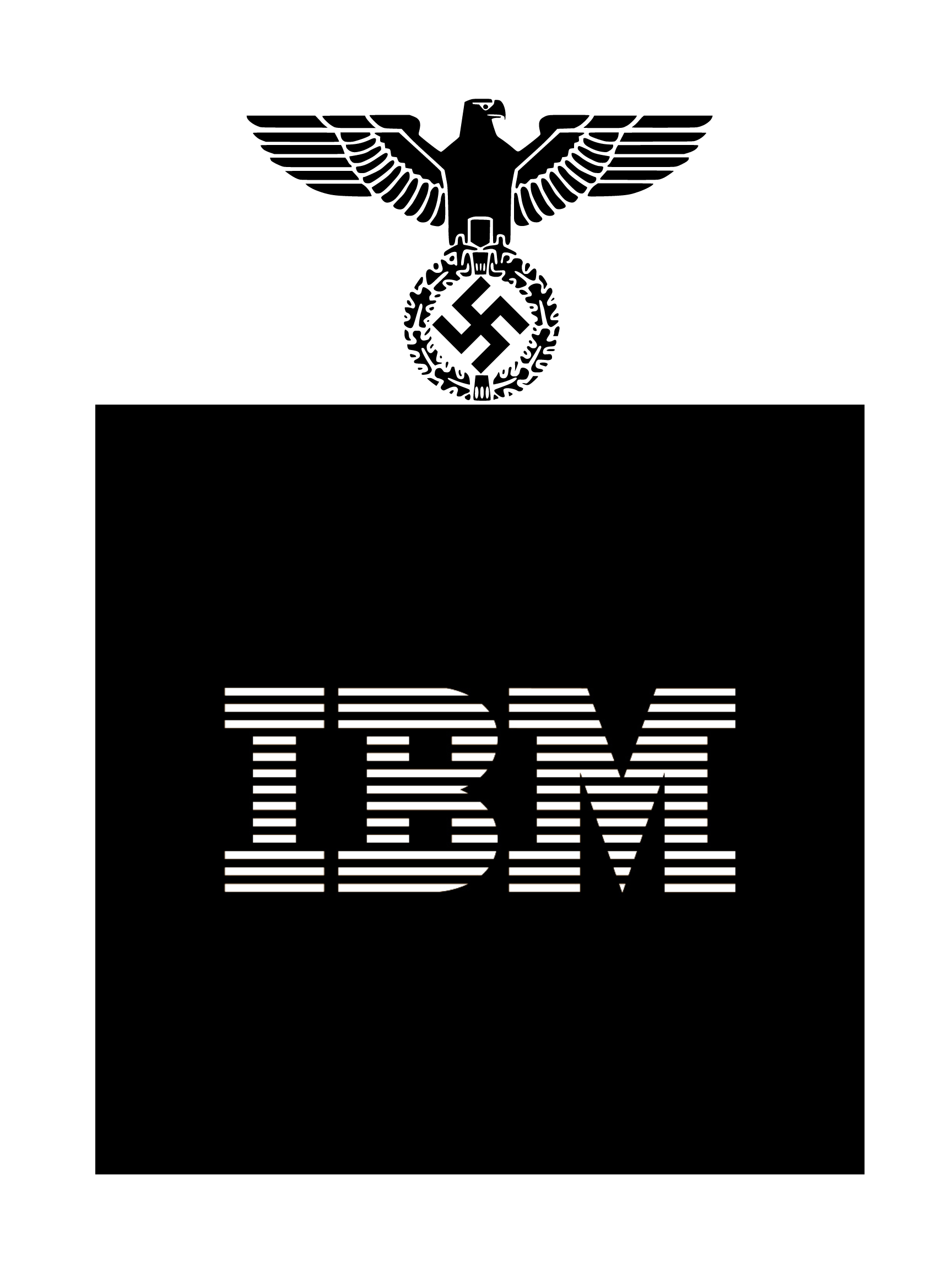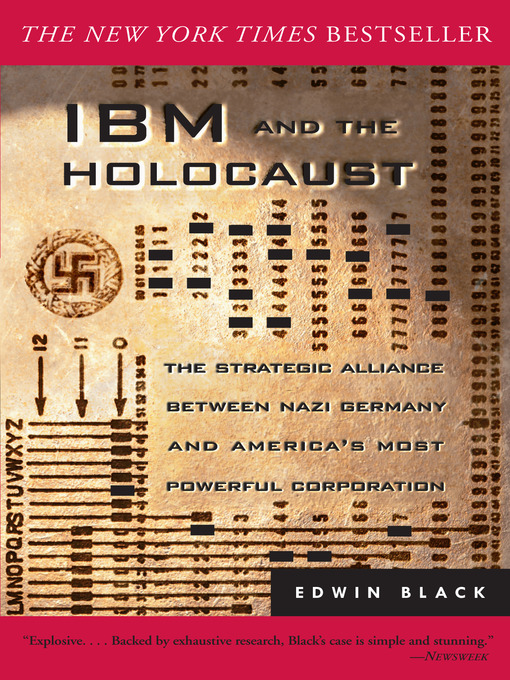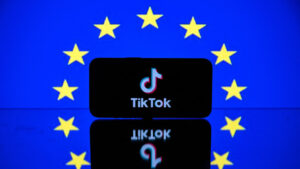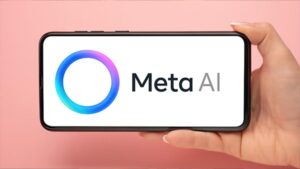
Logo captures close knit ties between corporate America and Nazi Germany.
In the past few years, IBM has continued to evolve in the Artificial Intelligence and Natural Language Processing space, and expanded its offerings in IBM Watson which permits for it to be an effective learning tool for Coursera. The exposure to content is not only good for students, but for IBM to engage with a growing cadre of participants in this niche space that is NLP.
However, as some experts in NLP push for greater moral awareness, the shameful past of certain companies could indicate who will take a cavalier attitude towards safety and risk mitigation in AI. Specifically, IBM has recently entered the AI space with the intellectual property once owned by McDonalds Labs and created by a now defunct Israeli company, Apprente.
Might we have a situation where out of respect for their victims, IBM has a moment akin to the destruction of slaver statues in the United States? There may be reason to do so considering that the brand has such a checkered past.
IBM is an American company. Why is their checkered past acutely un-American?
IBM was founded in 1911 by Charles R. Flint. Thomas Watson entered the fold in 1914 to rescue one of the companies managed under a different corporate structure. However, the name “IBM” emerged in 1924 once a series of administrative changes took place.
According to its internal literature “IBM quickly grew to become a leader in the computing industry, introducing the first commercial electric typewriter in 1933 and the first mass-produced computer, the IBM 701, in 1952. IBM also pioneered the development of the magnetic stripe card and the barcode scanner, both of which are still used today.” However, the curious part in this literature are the missing decades of activity between 1930 and 1945 where things get very interesting with respect to the IBM management of Nazi census.
Those two lost decades in corporate literature represent IBM’s active participation in the imposition of a new world order that would be governed by Nazi Germany. Blitzkrieg, concentration camps etc. were all of the significant activities to which IBM’s tabulating machines contributed to actively.
In its modern incarnation, IBM is phenomenal and recently has taken the Google approach of helping the uninitiated engage with NLP related content in ways that are equivalent to any usual college course without the hassle of dealing with an administrative process.
However, historically, the company has a human rights problem involving how they helped Nazi Germany tabulate Jewish people and other individuals found undesirable.
The egregious activities are a matter of historical record although, like any company in this position, there are some who try to question the veracity of their complicity as part of a white washing campaign. These issues are very much distinct from the controversies surrounding newer entities, like Google or Microsoft, too.
For instance, allowing Germany to develop technology that helped manage their facilities more efficiently saved them millions of man hours which allowed them to impose an even greater human cost on war time innocents. Not only that, but the hostilities between Nazi Germany and the rest of the Western powers was already brewing and the United States had laws banning such interactions. Again, not very American on IBM’s part.
IBM & The Holocaust

We can learn all about this in “IBM and the Holocaust”, a groundbreaking book by Edwin Black that reveals how IBM and its business partner Dehomag played a key role in the Nazi holocaust. The book details how IBM used its advanced punch card technology to help the Nazis track Jews and other persecuted people, organize concentration camps, and manage the logistics of the ‘Final Solution’. It also examines the company’s role in the Holocaust in the years leading up to and following World War II.
IBM’s technology was instrumental in the Nazi’s ability to efficiently and systematically carry out the mass extermination of Jews and other persecuted people. Additionally, the book details the moral implications of IBM’s involvement and explores the company’s actions after the war.
Proxy Companies
One of the important points to remember is how Thomas Watson manoeuvred around crude US embargoes and a politically unfavourable climate. It is not clear whether Watson could repeat this behaviour today without facing jail-time for essentially evading sanctions against a hostile superpower. Much of his duplicitous work was conducted under secrecy through thinly veiled subsidiaries.
For instance, the German subsidiary, Dehomag, was essentially a front company that owned the Intellectual Property necessary for the punch card system. They manufactured across Axis controlled Europe tabulating machines with direct German government contact. This would be analogous to a subsidiary of any fortune 500 company manufacturing tools alongside a government, like Russia, although much worse since Nazi Germany was openly warring with many allies and posturing against the United States. Currently, Russia has no open hostility with the United States.
Worse still, even after United States entered the war a complex of shell companies moved profits to IBM NY.
Acquisition of McDonalds Tech Labs
As mentioned earlier, one of the reasons for my personal scrutiny is due to growing importance of moral and social governance around AI technologies. A discussion of IBM’s engagement with certain advanced technologies has to be weighed with this past in mind.
Apprente developed a voice recognition software that would be optimized for Drive-Thru orders in the restaurant space. A fairly harmless endeavour for sure. However, as most language models work, this needs a great amount of real world data. Therein lies the problem. Is IBM’s past morally sound to provide users the opportunity to yield informed consent?
For instance, in any US based psychology research, the notion of informed consent involves the a research participant understands the ramifications of their participation. This requires the materials produced to pass an IRB review, which then leads to a back and forth dynamic. In the United States, however, no such regulatory board exists for Artificial Intelligence projects that engage the public. Thus, we could very well have a situation where IBM collects necessary voice data from the public without them knowing what collection process they are participating in and for what purpose.







